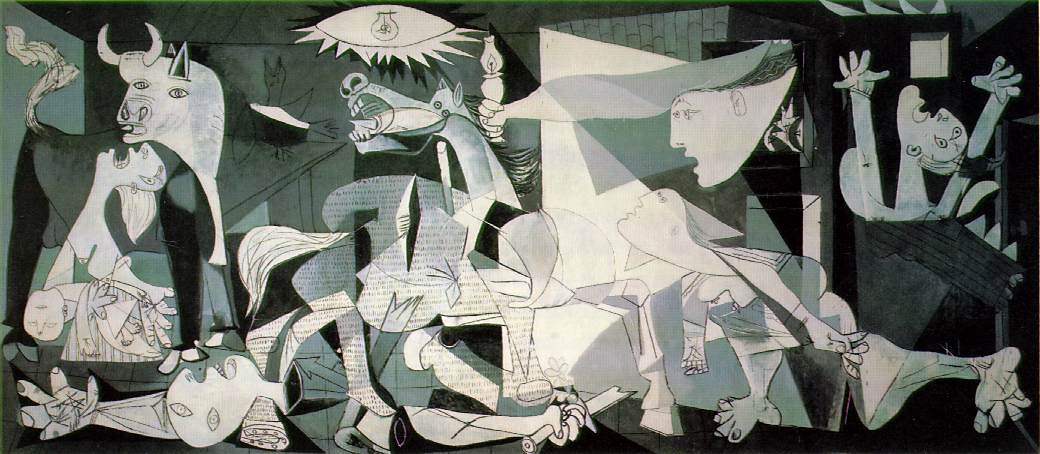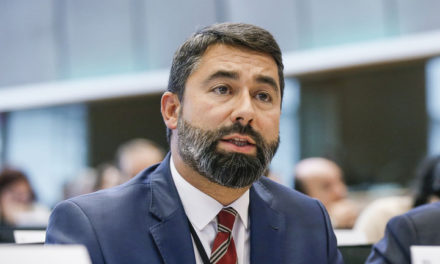As a consequence of the war in Ukraine, the world was shaken by the winds of civilizational risk. Below - without claiming to be complete - I will try to present the great civilizational risks of our time.
Energy is the basis of the operation of our economy . Since this resource is not evenly distributed on Earth, the slightest disturbance in the energy flow affects the entire world. We can see this now, as a result of the war in Ukraine and the sanctions against Russia. And if there is no heating for several days in winter, the water and heating pipes freeze. This fate awaits Ukraine.
Energy, globalization
the globalization , long production and trade chains have developed, and if there is a disturbance in this, even for political reasons, the machine lines will stop somewhere or a market shortage will arise. We saw the former in the automotive industry because of the shortage.
Today, everything is powered by electricity, and many important programs are controlled by satellites. On September 1, 1859, there was a huge solar flare , which caused an electric discharge between the telegraph wires in the USA. Today, a solar flare of this size would destroy satellites and transformers in a large part of the Earth. In many places, there would be no electricity for months, factories, banking services would stop, there would be no lighting, water and heating, etc. I emphasize that satellites can be destroyed with military means ! I will also note here that I think many industrial products are overcomplicated. A typical example of this is the car and the many gadgets, the capacity of which most people cannot even use.
Urbanization as complete vulnerability
Urbanization in itself also represents a civilizational risk. Before and during the Second World War, even in the most developed countries, electricity was not one of the basic living conditions of the rural population. The countryside was self-sufficient in the products most necessary for survival. It had food, well water and independent heating. During the war, it was the city's reserve food source and sometimes its shelter. Nowadays, in the most developed countries, the self-sufficient layer in terms of basic living conditions has practically disappeared. Even in rural areas, the population buys food in shops, their water supply and heating depend on the functionality of public utilities, and the latter depends on energy imports. In our arrogance, traditional chimneys are no longer built in new houses. Hundreds of millions of people in the developed world have been put in a state of complete vulnerability. We can see this as a consequence of skyrocketing energy prices.
How long does technical progress make sense?
Humanity should therefore face the problem of how long technical development makes sense, and how long it is worthwhile to increase the civilizational risk arising from long production and trade chains ? Where is the reasonable limit of the international division of labor? I ask the question: if we removed imports from Hungarian stores, what would be left on the shelves except for food? I also like comfort, I don't want to light with a kerosene lamp and wash in the sink like I did when I was a child, but I still have the impression that humanity is already taking too many risks. You can fall big from such a height! In my opinion, in contrast to globalization, it is necessary to increase the ratio of local production and self-sufficiency, and shorten production and trade chains.
The highly qualified scientist and the mass society
The previously discussed civilizational risks were of a technical nature, but there are also two specific, humane civilizational risks: the highly qualified scientist and the society made up of mass people. Let's see the first one. The geneticist of our time is already able to delve into the wonderful process of individual development, is already able to keep an embryo alive in an artificial womb, and combining this knowledge with gene manipulation can already be used for targeted human breeding. And biologists and technical scientists worked/work in the production of weapons of mass destruction, which are capable of destroying higher-order terrestrial life. Both scientists pose a huge civilizational risk! It was a shame to pick the forbidden fruit of the tree of knowledge!
A new type of person
Finally, a word must be said about the people who make up the society of our time. Oswald Spengler characterizes this new type of person in his work "The Twilight of the West" (1923) as follows: "... instead of the peoples growing together with the land, a new nomad, a parasite appears, the city dweller, appearing in the formless undulating crowd, devoid of traditions, irreligious , an intelligent and unproductive man of fact." I presented this type of person in detail in my article published on the CÖF website on April 27, 2022 entitled "The opposition between the countryside and the big city according to Oswald Spengler".
The other great contemporary philosopher, Jose Ortega y Gasset, calls the new type of man the mass man: "The mass man feels perfect... He utters clichés, prejudices, scraps of thought, or simply empty words... He proclaims the right of the common people, ordinariness as a right and carries it through... Europe created a system of norms... Now the mass peoples have decided to discard this system of norms, which is European civilization itself... If we leave out the Christians, the idealists, the old liberals, etc., we do not find among the representatives of the present era a single one who his attitude towards life should not be based on the belief that he has all rights and no obligations ... he feels that he has unlimited rights ... he should not be interested in any duties - such as courtesy, truthfulness and above all, respect for superior individuals and evaluation... The mass man simply lacks morality... this personality does not represent some other civilization fighting the old, but only a mere denial." To put it more harshly: nihilism.
According to O. Spengler, great cultures die when the only great goal in a person's soul is to make money. He calls this type of people "nomads and parasites", and the place of appearance of this type of people is the big city of stone colossi. J. Ortega calls the new type of man "mass man", whose creation was made possible by the following: "Three principles make this new world possible: liberal democracy, experimental natural sciences and industrialization. The last two can be summed up: technique." The XIX during the industrial revolution of the 19th century, a mass of mostly non-existent, often lumpen people flowed into the city, whom the old urban citizens could not assimilate or raise to themselves, because the proportions did not allow this. J. Ortega could have meant this with the combined concept of "technique".
His insightful observation that the degeneration of liberal democracy had begun, he noted the essential difference between the new and the "old liberals". And we can already see very well where the extreme cult of freedom leads. In summary, both great philosophers simultaneously perceived the emergence of a new type of man that, if it spread, would shatter our Christian-based civilization. In our time, we call this type of person an eternal revolutionary or a progressive. The two opinions regarding the creation of the new human type complement each other well.
I emphasize that the situation of morality and culture in the white man's world is much worse today than it was a hundred years ago, because the liberal state itself is already working to destroy our Christian-based culture in the West - by introducing legislation incompatible with traditional moral principles! And the left-liberal majority of the Union. And with the advent of the Internet, it is almost impossible to defend against ideas that destroy morals. What would the two great philosophers write today about the idealism of an open society, multiculturalism, the cult of sexual deviance, gender madness, and the betrayal of Europe? Unfortunately, I do not hear the protesting voices of the Christian Church or the philosophers. I wonder what they teach in our universities under the title of philosophy and ethics? Who are watching over the moral order of humanity today?
Probably the greatest civilizational risk is the amoral type of people who reject all traditional moral principles becoming mass!
2023.02. 05.
Author: Pál Bartha ny. forest engineer, Telki
Cover image: Illustration / Pablo Picasso – Guernica












